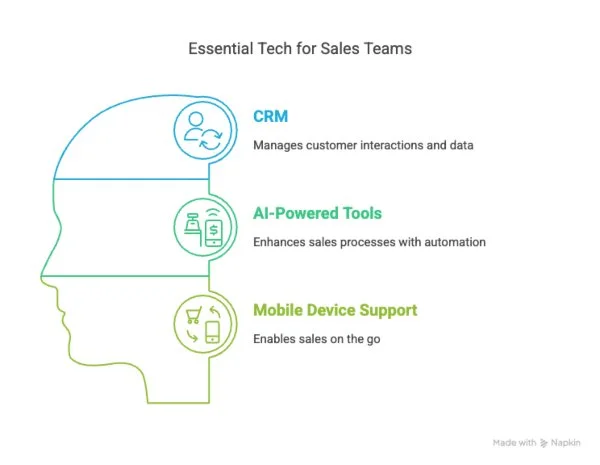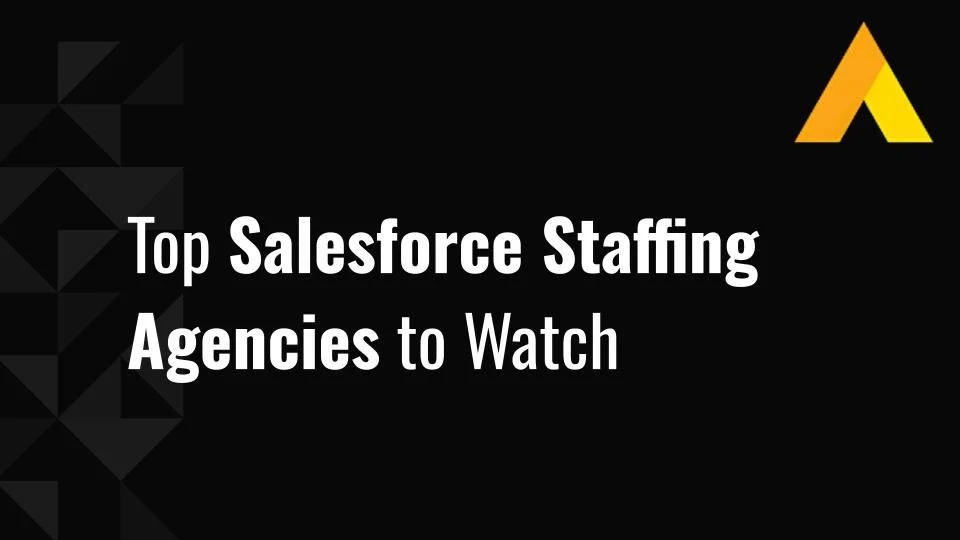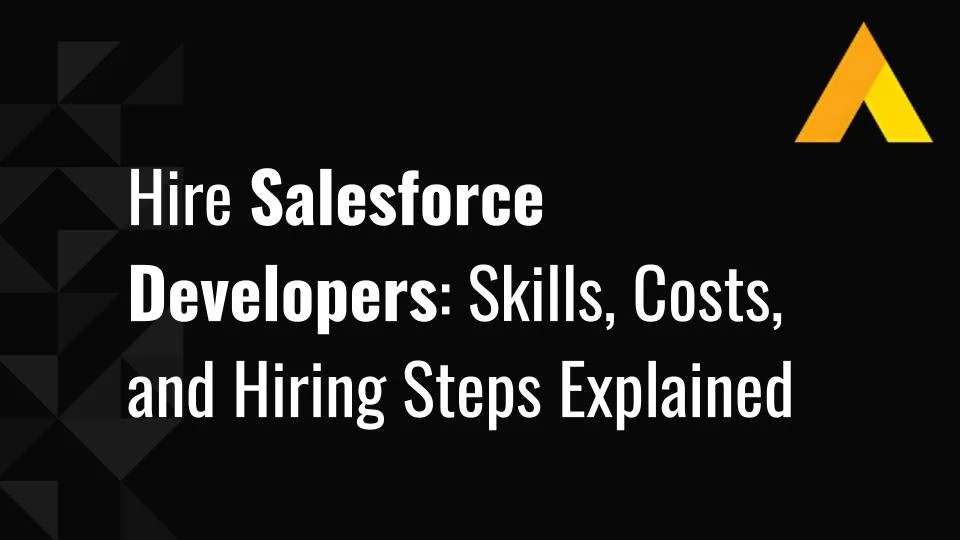Sales Hiring in 2025: What Do Top Candidates Want?
You’ve heard it before—“Offer a big commission and sales candidates will line up.”
That’s outdated.
Top candidates in 2025 care more about flexible work options, the interview process, and long-term success than just hitting sales targets.
They expect a positive experience, not just a paycheck.
In a competitive job market, what you offer—and how you offer it—defines your edge.
This article breaks down what qualified candidates actually want in today’s recruitment process and what gives you a real competitive edge.
Why Is It So Important to Hire the Right Sales Talent?
Hiring for a sales role isn’t just about filling a seat. It’s a strategic decision that directly affects revenue, team morale, and long-term growth.
Sales professionals hold a critical role. They’re the link between your product and your market. A single ideal candidate with strong sales skills can consistently hit sales quotas and greatly improve your overall sales performance.
Sales professionals play a critical role. They connect your product to the market and drive revenue in every sales role they take on.
High-quality hires boost performance. One ideal candidate with strong sales skills can consistently hit sales quotas and improve overall sales performance.
Bad hires are expensive. They slow down your sales approach, damage morale, and drain your talent pipeline.
The market is tight. In a competitive market with a growing talent shortage, hiring the right talent is non-negotiable.
Skills-based hiring works. It means you can focus on transferable skills, soft skills, and excellent communicators, not just job experience.
Feedback fuels better choices. Input from current employees and feedback from candidates helps refine recruitment efforts and improve the candidate experience.
Inclusive hiring builds strong teams. It supports a resilient sales team with diverse strengths and backgrounds.
Informed hiring decisions drive long-term success. Effective talent acquisition strategies are what separate average teams from exceptional sales organizations.
What Do Top Candidates Want in 2025?
1. Pitch the Company Like a Sales Call
Think about the last time you saw a bad sales pitch. It was probably vague, generic, and didn’t speak to your actual needs. That’s exactly how top-tier sales candidates feel when recruiters hit them with recycled buzzwords like “dynamic team” or “fast-paced culture.”
If you're trying to hire strong sales professionals, treat the recruitment process like a sales conversation. That means opening with value, qualifying their interests, addressing objections, and closing with clarity. In other words, sell the opportunity like you’d sell a high-ticket deal. The graphic below illustrates how this works:
Salespeople are wired to spot weak pitches. They want specifics: What are the average commissions? What’s the average time to ramp? How aggressive are the quotas? If you can’t answer those, your offer loses credibility.
A survey found that 69% of job seekers are more likely to apply to a company that actively manages its employer brand. That means if you're not clearly communicating what makes your sales team unique: your hybrid model, your competitive salaries, your career development path, you're losing your competitive edge before the interview even starts. Salespeople know how to close deals. They expect you to know how to close them, too.
2. Include a Real Sales Challenge
If you're hiring for a sales role, forget the scripted “sell me this pen” routine. It doesn’t test real sales aptitude, it tests improvisation under pressure. Instead, give candidates an anonymized sales challenge your team actually faced. Maybe a qualified lead went cold after pricing came up. Maybe a competitor undercut your offer. Whatever the case, use that real-world scenario to see how the candidate thinks, responds, and communicates. This creates a more authentic sales interview process and makes the recruitment process feel relevant and engaging.
Sales challenges reveal far more than canned Q&A. You get a window into how a potential hire handles objections, communicates value, and adapts under pressure. About 60% of customers say “no” four times before accepting a sales offer, which shows how important objection handling is for sales staff.
The image below highlights the key benefits of these sales challenges:
This also shows respect for the candidate’s time and skills. Instead of vague hypotheticals, you’re giving them a shot to solve something meaningful. In a market where every competitive edge matters, that kind of challenge can attract candidates with the problem-solving mindset you actually want in your sales team.
3. Use Metrics They Care About
Top sales candidates don’t get excited by buzzwords like “unlimited potential” or “fast growth.” They care about the numbers, because numbers tell the truth. If you're serious about attracting qualified candidates, show them the data behind the opportunity.
That means disclosing your average time to quota, average deal size, close rates, churn rates, and even how the sales team is performing quarter-over-quarter. These are the metrics sales professionals use to gauge if a job is worth their time and if the sales targets are actually realistic. The graphic below highlights these key metrics.
Research shows that the average rep takes 3.2 months to reach full productivity, yet many companies expect results faster than that. Sharing your actual ramp timeline builds credibility. If your team’s average deal size is $12K and your top reps close 25 deals per quarter, that's something to lead with.
By being transparent with your sales metrics, you’re not just selling the role, you’re signaling that your recruitment process respects the candidate’s intelligence and time. In a competitive job market, that kind of clarity is a powerful tool for building trust and attracting top-tier sales talent.
4. Let Them Talk to Your Top Rep
Recruiters can explain the hiring process, but they can’t give potential hires the unfiltered truth about hitting quota, handling pressure, or navigating your sales tech stack. That’s why smart teams loop in their top-performing rep during the interview process. It builds credibility instantly.
Candidates get to ask the hard questions about actual earnings, how leadership handles tough quarters, and whether the flexible work policies are real or just branding. And top reps don’t sugarcoat it, which is exactly what high-performing sales professionals want to hear.
This step is a strategic decision. Candidates who have a positive interview experience are 38% more likely to accept a job offer and 50% more likely to stay with the company after three yeas, When this interview experience includes real talk from a peer, not just a hiring manager, it makes a lasting impact. The image below shows why this works so well.
In short, it shows confidence in your sales team and company culture. If your top rep is hitting targets and still believes in the role enough to vouch for it, that’s more persuasive than any job description or recruiter pitch. It signals to potential candidates that your team isn’t just selling, they believe in what they’re selling.
5. Clarify the Sales Stack Upfront
Sales professionals don’t just care about the product, they care about how they’re expected to sell it. If your sales tech stack is clunky, outdated, or overly manual, your recruitment efforts will struggle. Top candidates want to know upfront: What CRM do you use? Are AI-powered tools part of the workflow? Do you support selling through mobile devices? These aren’t side questions, they directly impact a rep’s ability to hit sales quotas and stay productive in a fast-paced environment.
The image below outlines a few key tools your sales team might use:
According to Salesforce, 83% of sales teams using AI saw revenue growth in 2024, compared to just 66% of those that didn’t use AI. That’s why strong reps ask hard questions about your stack. They know that every hour wasted on tech inefficiencies is time not spent building pipeline or closing deals.
Transparency here also signals trust. If your stack includes smart automation, real-time lead scoring, and integrated tools for reporting, it gives your company a competitive edge. It also shows potential candidates that you’re actively equipping people to succeed. And in a hiring process driven by performance, that’s what the best candidates want to see.
6. Offer Fast, Constructive Feedback
Sales candidates are used to hearing “no,” but they expect to hear why. When you leave them in the dark after interviews, you're not just ending a conversation. You're damaging your reputation in a competitive job market.
Fast, constructive feedback shows you value their time and effort. It also mirrors what top sales professionals do daily: review objections, analyze performance, and improve their pitch. A hiring process without feedback feels like a dead lead. The image below shows why feedback is so important.
The numbers back this up. According to one survey, 52% of candidates who didn’t receive feedback said they were less likely to engage with the company again. And in sales, where reputation and referrals matter, even a rejected candidate can become a passive candidate for future roles, or refer someone better suited.
Constructive feedback doesn’t mean a full performance review. A short, specific note about what stood out and where there were gaps is enough. It helps the candidate grow, and it positions your company as one that values human judgment and professional development. That’s exactly what attracts high-quality, self-aware candidates who are committed to long-term success.
7. Discuss the Future Sales Role, Not Just the Current One
Top sales candidates aren’t always thinking about where the role leads in a year, two years, or five. If you want to attract high performers, you need to show that your hiring process includes a real plan for growth. That could mean outlining paths to a sales management role, access to development programs, or structured mentorship aimed at building sales leadership success. Candidates want to know if this is just a job, or the first step in a career.
The graphic below shows some fo what top performers are looking for:
According to a Gallup report, 87% of millennials rate professional development and career growth opportunities as important in a job. In the sales world, this is especially important.
Offering access to sales courses, sales management masterclasses, or a formal development program signals that you’re invested in long-term success. It also attracts candidates who are coachable, growth-minded, and ready to become effective sales managers.
8. Tailor the Interview to Their Track Record
If a candidate has managed a resilient sales team, crushed ambitious sales targets, or trained reps who consistently outperform, treat them like it. One-size-fits-all interviews are a fast way to lose top talent. High-level sales professionals expect strategic questions that reflect their job experience and skill sets, not hypotheticals about how they’d sell a pencil. Remember that they’re evaluating your hiring process too. Show them you did your homework.
According to a survey by Cronofy, 72% of candidates said the smoothness of the interview process would affect their final decision. That means using tailored, informed hiring decisions, especially for those applying to senior-level sales roles, makes a real difference in conversion. The image below shows the value of tailored questions:
Want to hire for leadership potential? Ask questions for sales managers: How do they handle a team missing quota? What principles for sales leadership do they believe in? How do they evaluate sales capabilities beyond just numbers? These kinds of questions test knowledge but also show respect for what the candidate brings to the table.
9. Show Flexibility Where It Matters
Sales candidates in 2025 are looking for more than just a remote role, they’re looking for control. Generic promises about “flexible work arrangements” don’t cut it anymore. If your company offers a hybrid model, flexible hours, or a performance-based remote work policy, spell it out.
Be clear about when they’re expected to be online, what meetings are mandatory, and how productivity is tracked. That level of transparency builds trust and helps potential candidates decide if your setup aligns with their working style.
Data backs this shift. A 2024 report from McKinsey found that 87% of employees offered at least some flexibility in where and when they work take advantage of it. In the context of sales, this means allowing top performers to structure their day around client meetings, follow-ups, and quota targets, not rigid 9-to-5 rules.
The image below outlines a few ways you can offer more flexibility to your sales reps:
Being specific about your flexible work options also strengthens your recruitment process. It helps you attract the right potential candidates, especially those who value autonomy, time management, and performance-based evaluations. And in a world where flexibility is often the deciding factor, clear policies can be your competitive edge.
10. Share Unfiltered Employee Testimonials
Sales candidates are skeptical by nature. They don’t trust scripted talking points or marketing fluff, and they shouldn’t. That’s why unfiltered employee testimonials are a powerful tool in your hiring process. Let your current sales reps talk openly about what it’s like to hit sales quotas, use your CRM, deal with management, or handle challenging sales objections. Raw, real experiences, good or bad, build more trust than any “Meet Our Team” video ever could.
The numbers prove how much this matters. A survey by CareerArc found that 55% of candidates have decided against applying for a position after reading negative employee reviews. That’s why sales candidates take employee testimonials seriously, they’re looking for signals about company culture, realistic sales targets, and whether leadership actually supports the sales team.
The graphic below shows the impact of strong employee testimonials:
If your current employees feel supported, challenged, and respected, let them tell that story in their own words. Bonus: you’ll also strengthen your employer brand and attract qualified candidates who align with your real values, not just the ones written on your careers page.
Common Challenges When Hiring Top Sales Talent
Hiring top-tier sales professionals is about precision. But many companies still make predictable mistakes that turn strong candidates away or set them up to fail. Here are 5 of the most common missteps and how to fix them:
1. Selling the Role Instead of the Mission
Mistake: Overemphasizing comp plans and perks without explaining the broader purpose or market impact.
Why It Fails: High performers want to know what they’re building, not just what they’re closing.
Fix It: Tie the role to bigger outcomes like market disruption, revenue transformation, team leadership. Sell the mission, not just the commission.
2. Using Generic Interview Processes
Mistake: Asking every candidate the same entry-level questions, regardless of experience.
Why It Fails: Top reps see this as a waste of time and a red flag.
Fix It: Customize the sales interview process based on the candidate’s track record. Ask strategic questions for sales managers if they’ve led teams or hit seven-figure quotas.
3. Ignoring Soft Skills and Leadership Potential
Mistake: Over-indexing on past performance metrics and closing stats.
Why It Fails: Strong sales teams need excellent communicators, effective sales managers, and people with real interpersonal skills, not just lone wolves.
Fix It: Screen for soft skills and transferable skills using scenario-based questions or peer interviews. Think long-term: Sales leadership success starts early.
4. Underestimating the Candidate Experience
Mistake: Delayed replies, poor interview scheduling, and no constructive feedback.
Why It Fails: The best candidates will walk if your hiring process feels unprofessional.
Fix It: Tighten operations. Use AI-powered tools for scheduling. Offer a positive experience with consistent updates, even for passive candidates.
5. Promising Flexibility Without Delivering It
Mistake: Promoting flexible work arrangements that don’t really exist
Why It Fails: Top reps will uncover this fast, and post about it even faster.
Fix It: Be transparent. Outline exactly what your hybrid work models and flexible hours look like. Vague promises lead to negative reviews.
Each of these challenges weakens your ability to attract and convert qualified candidates. Avoiding them gives you a real competitive edge in a market where talent shortage and high expectations define the game.
What’s Next?
Top sales talent won’t wait for outdated hiring tactics to catch up. They want clarity, challenge, flexibility, and a hiring process that respects their time and skill level.
If you’re serious about building a successful sales team in 2025, apply these insights now, before your competitors do. Audit your interview process. Revise your employer pitch. Replace generic steps with targeted, informed hiring decisions.
Because in this market, how you hire is your competitive edge.
















